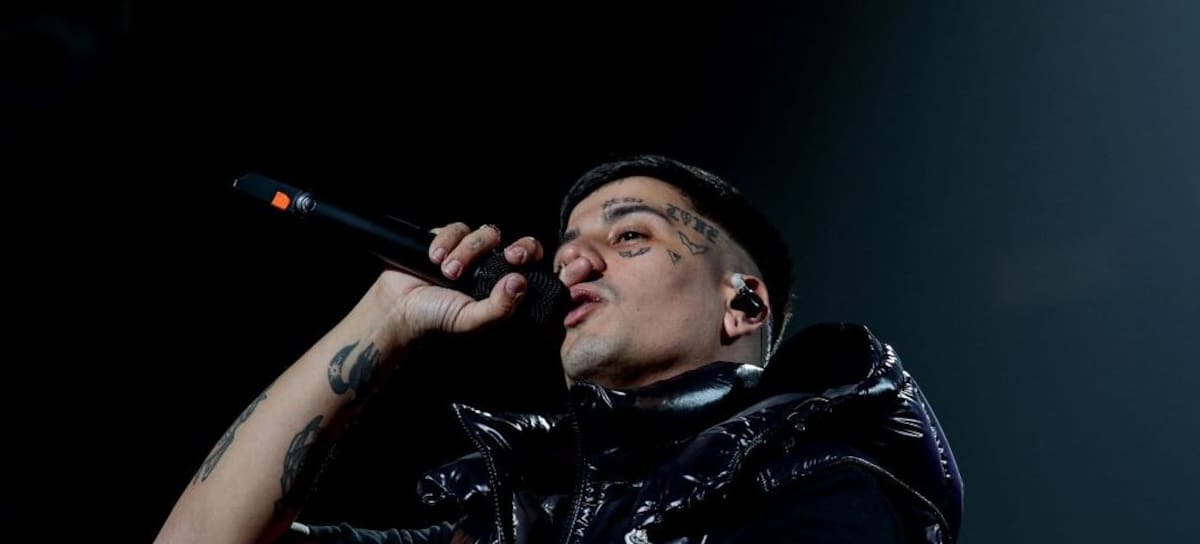The Value of Duki’s Lyrics & the Urban Scene in Argentina
A qualified voice analyzes what these lyrics contribute and the language proficiency

Duki during a performance at the Wizink Center. Ricardo Rubio/Europa Press via Getty Images
«I have two daughters, aged 8 and 10, and reggaeton has entered their lives completely: it’s everywhere. In my opinion, it talks about things that are not suitable for their age, at a time when they are shaping their view of the world and have a significant mental mess. But I’m afraid it’s almost impossible to escape from it: it’s what they like,» says Isabel Cuéllar, an elementary school teacher. A testimony shared by many. Not only are many education professionals against the lyrics of this genre. The list of those who think these lyrics leave much to be desired is extensive.
The inappropriate and sexist themes of many urban scene lyrics, which take on a macho tone, have been criticized. Its simplicity and lack of compositional work have also been criticized.
But not everyone thinks the same. In fact, we’ve found a prestigious Argentine investigative journalist and writer, Florencia Etcheves, who defends these lyrics, especially those of the urban scene in her country, and specifically those of Duki, of whom she confesses to be a total fan. She has worked in television for over 25 years, some of her novels can be seen adapted on Netflix, and she has just released «La cocinera de Frida,» her latest novel.

Duki performs during the first night of the BigSound Festival 2023, in Valencia, Comunidad Valenciana, Spain. Jorge Gil / Europa Press via Getty Images

Duki performs during the first night of the BigSound Festival 2023, in Valencia, Comunidad Valenciana, Spain. Jorge Gil / Europa Press via Getty Images
Argentine Urban Scene Fan
She is in her fifties and is aware that it’s not a genre that resonates with her generation, but it has caught her attention, particularly because of its lyrics.
«I am a 50-year-old lady, and I must say that I am a fan of trap and urban music, and I am fascinated by this universe of young boys and girls who are not even 25 yet, like Duki, María Becerra, Bizarrap, Emilia Mernes… I’m a fan like a child,» she confessed to us in a Zoom conversation. She has no reservations about admitting that she has fallen into the web of this musical scene that has gained so much international projection.
Duki’s Magic
For her, «Duki is magic.» Beyond whether one likes the melodies or not, she, as a language professional, highlights the ability of this new generation to play with language.
«As someone who loves words, I find it very interesting, looking at it from a 50-year-old lady’s perspective, the wordplay and how they play with language when composing song lyrics. I find it fascinating,» she says.
She acknowledges that she prints these lyrics «and reads them, Duki’s or María Becerra’s, whom I love, and I see the metrics they use and see the semantic field, how there are many synonyms, how they mix Spanish with English, so that a person who doesn’t speak English understands the meaning of that word in context.»
Language Experts
Etcheves’ analysis of these lyrics is purely technical: «I think it’s a fascinating job that clearly delves into language, and, to me, anything that engages with language to play, to undo it, to break it, to experiment with it, fascinates me.»
She doesn’t hesitate to compare the lyrics of singers like Duki to modern poetry: «The metrics, at times, seem like modern poetry. How they cut words in a paragraph so that the second half of the word continues in the next paragraph, and you didn’t miss the word in the middle. I find it a fabulous puzzle, and these are boys and girls who compose their lyrics, and they are very young to have such language proficiency.»
She emphasizes their ability to use language at such a young age, something that many adults wouldn’t be able to do. «To play with language and to break language, you have to know it a lot, and they know it instinctively because they are too young to know it so much, due to their age, and yet they do it. I find them fabulous. For me, Duki… I haven’t seen anything as disruptive in the Argentine music scene.»
She refers to the current stage because she is aware that the Argentine music scene has had a long history and a lot of experimentation.
«I’m going to make a comparison that maybe here in Argentina they will throw stones at me for what I’m going to say, but it’s a very personal appreciation. For me, the disruptive Argentine band that always played with language was Los Redondos, Patricio Rey y sus Redonditos de Ricota, Los Redondos as we call them, who have incredible lyrics, and I think that since them, I haven’t seen a language play as interesting as what Duki proposes. I’m not comparing them; they are different times, but I’m talking about language proficiency, breaking language, throwing it and building stories with it,» she argues.
It’s clear that not everyone agrees with her understanding of this language use, but as always, there are opinions for all tastes, and the best thing is to be able to debate with respect and arguments, and she shares hers.
Original article of Cristina Zavala on los40.com
Ana Rojas
Periodista en LOS40, coordinando LOS40 USA y colaborando también en El País. Cubro temas de música,...
